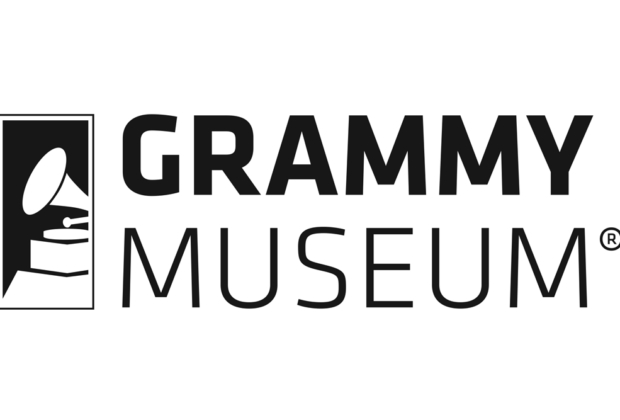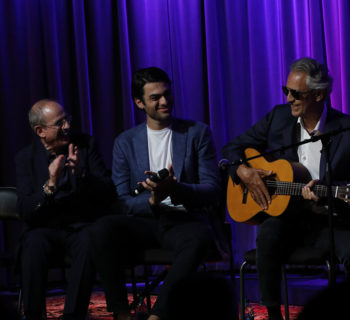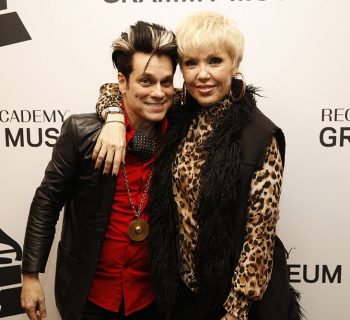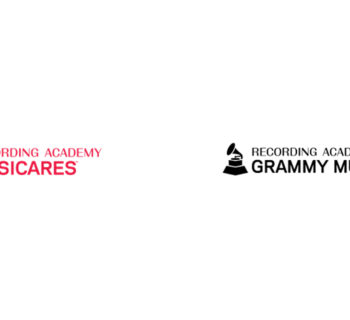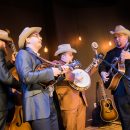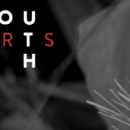The GRAMMY Museum Grant Program announced today that $200,000 in grants will be awarded to 13 recipients in the United States to help facilitate a range of research on a variety of subjects, as well as support a number of archiving and preservation programs.
"The GRAMMY Museum Grant Program to date has awarded more than $7.5 million to more than 400 grantees," said Michael Sticka, President of the GRAMMY Museum. "As a nonprofit cultural organization that relies on annually applying for grants to help fund our education programs, we are well apprised of how much of an impact an approved grant can make. The work we help fund through our grants program, with the Recording Academy as our partner, includes an impressive array of projects that are at the forefront of exploring music's beneficial intersection with science, and that maintain our musical legacy for future generations. The initiatives announced today exemplify the Museum's mission to uphold music's value in our lives and shared culture."
Generously funded by the Recording Academy®, the GRAMMY Museum Grant Program provides funding annually to organizations and individuals to support efforts that advance the archiving and preservation of the recorded sound heritage of the Americas for future generations, in addition to research projects related to the impact of music on the human condition. In 2008, the Grant Program expanded its categories to include assistance grants for individuals and small to mid-sized organizations to aid collections held by individuals and organizations that may not have access to the expertise needed to create a preservation plan. The assistance planning process, which may include inventorying and stabilizing a collection, articulates the steps to be taken to ultimately archive recorded sound materials for future generations.
The deadline each year for submitting letters of inquiry to the Grant Program is Oct. 15. Guidelines and the letter of inquiry form for the 2020 cycle will soon be available at www.grammymuseum.org.
Scientific Research Grantees
Ryerson University— Toronto
Awarded: $20,000
Older adults often face formidable challenges to psychological and social well-being, including depression and loneliness. Group singing appears to mitigate some of these core challenges. This project will assess the impact of group singing on the psychosocial wellbeing of older adults. It will also clarify the neurobiological underpinnings of these benefits. These findings may help promote non-pharmaceutical methods for supporting well-being in older adults.
Music and Health Sciences Research Collaboratory, Faculty of Music, University of Toronto — Toronto
Awarded: $20,000
The purpose of this study is to investigate the prevalence of the Val66Met BDNF polymorphism, a genetic mutation associated with deficits in motor learning, in a sample of musicians versus the general population. This will give insight into the roles of genes (the Val66Met polymorphism) and music training on brain plasticity. Should musicians with the polymorphism exist, this serves as possible evidence for effective compensatory motor learning strategies.
Princeton University — Princeton, New Jersey
Awarded: $19,758
Previous work has revealed a hierarchy of brain regions that organize acoustic input at multiple timescales, but less is known about how the brain organizes information during the production of sound. Researchers will ask expert pianists to play musical pieces, which will have been structurally manipulated at different timescales, in the fMRI scanner. This will enable the investigation of diverse questions regarding motor planning, prediction, and learning in the context of naturalistic music performance.
The Research Foundation for the SUNY, University at Albany — Albany, New York
Awarded: $19,320
Prior studies have found that speakers of a tone language (TL), in which pitch changes alter word meaning, show advantages in music perception. To control for culture and second language experience, University at Albany researchers Ron Friedman and Lauren Clemens will examine this effect with speakers of Copala Triqui, an indigenous Mexican TL, and newly test whether TL use influences the perception of musical emotion. Results will inform the development of training programs to enhance linguistic and musical skills.
University of Oregon — Eugene, Oregon
Awarded: $20,000
This project explores the link between empathic social processing and music emotion recognition. By examining neural activation that overlaps when people make inferences about both social and musical stimuli, this project will help to explain how music connects people to others through neurobiological architecture that helps people understand and process the social world. Results may inform novel treatment for people with social cognitive impairment, such as autism.
Preservation Assistance Grantees
Experimental Sound Studio — Chicago
Awarded: $5,000
Experimental Sound Studio will create an integrated plan for digitization and online dissemination of the Malachi Ritscher Collection, which contains more than 4,000 live recordings documenting the diverse underground music scene at the turn of the 20th century.
Texas Folklife — Austin, Texas
Awarded: $5,000
Texas Folklife has an extensive archive of audio recordings and related material of Texas folk and traditional arts performances, field recordings, and artist interviews dating from 1984. For this project, they will identify potential project partners, update catalog records, and develop a long range plan for digitization, long-term storage, backup, widespread dissemination, and accessibility of the overall collection.
Preservation Implementation
Freight & Salvage — Berkeley, California
Awarded: $20,000
From an existing archive of 2,500-plus recordings, this project will focus on transferring 600 hours of recorded music by digitizing data from formats at the greatest risk of deterioration and by showcasing the influential traditional/roots musicians who performed at Freight & Salvage coffeehouse (1969–1989). They will disseminate the digitized archives through a partnering internet library that provides free access to musicians, researchers, and the public.
The Kitchen Sisters Productions — San Francisco
Awarded: $11,461
The Kitchen Sisters will catalog, digitize, preserve, and ultimately make publicly available the many music-centered stories and related recorded material in the Kitchen Sisters Archive, a collection of some 7,000 hours of interviews, oral histories, music, and field recordings — a deep archive of American story, music and cultural expression gathered across 40 years from the Peabody Award-winning NPR series, podcasts and stories.
Missouri State University Libraries— Springfield, Missouri
Awarded: $18,000
The Ozark Jubilee Digitization Project, a collaborative effort between the Missouri State University Libraries and the UCLA Film & Television Archive, will continue the processes of digitizing, describing, and providing free public access to a series of rare kinescopes of the Ozark Jubilee, a live, nationally broadcast, weekly country music program on ABC-TV originating from Springfield, Missouri. The program aired from January 1955 until September 1960.
Smithsonian Folkways Recordings — Washington, D.C.
Awarded: $20,000
Folkways Recordings will prepare and digitize approximately 400 audio reels and corresponding materials related to Arhoolie Records’ recordings of blues artists for preservation and online archival access.
Roulette Intermedium — Brooklyn, New York
Awarded: $10,000
This project will preserve, restore, catalog, and prepare for distribution and acquisition of 600 audio recordings captured between 2003–2011 at the legendary New York concert hall. These recordings are part of a 4,000-plus historic collection capturing significant achievements in contemporary music dating back to 1980 and continuing to this day. The archive mirrors the cultural and social transitions of the last 40 years, documenting singular achievements in American music.
The University of Pittsburgh Library System — Pittsburgh
Awarded: $11,461
The University of Pittsburgh Library System

